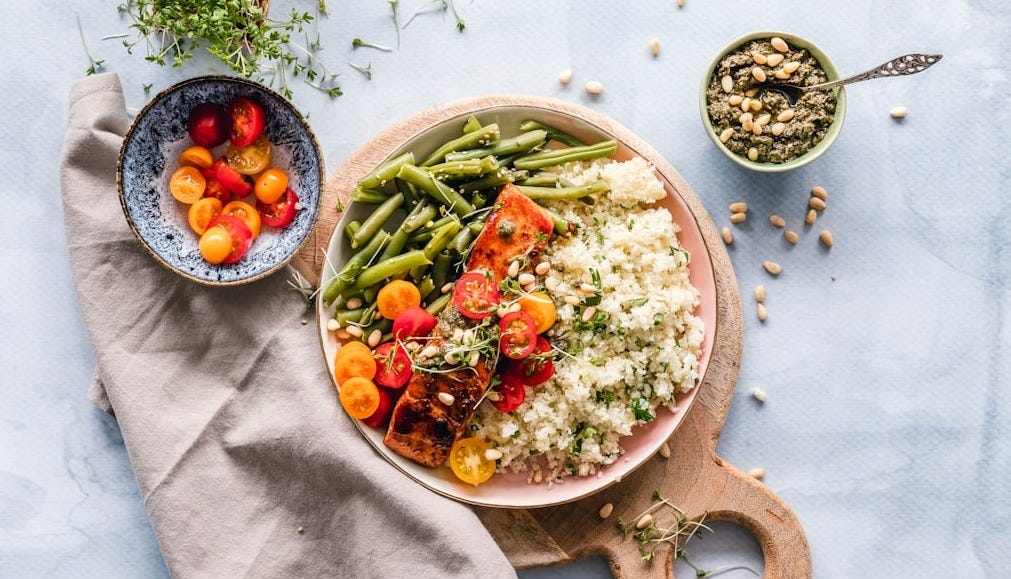
I recently covered research about how eating affects a child’s cognition, and it gave me pause for thought. Here I am obsessing over how many fruit and vegetables we all consume when some kids start the morning without anything nutritious at all - and when kids don’t eat well it widens the attainment gap.
It’s why the breakfast club policy the new UK government wants to introduce in the UK could have a far-reaching positive impact - do campaign for your school to put one off if they don’t already, it helps parents to start their working day earlier, and provides children with a nutritious breakfast
What the research on this did bring home is the importance of what we all eat in order to concentrate well, take homes we can all shout about loudly and model in our own families.
Schools are certainly emphasising healthy habits more than ever. My 5-year-old comes home and now regularly asks me how healthy what he’s heating is: “How many very’s is it, very healthy or very very very very healthy?”. Not that this stops him requesting a treat though, which is also fine in moderation. Here’s a bit more on why it really matters what we eat, as I wrote in my article:
The quality of food on offer is important, as learning outcomes differ between children who eat food with little nutritional value and those who eat highly nutritious food.
In one study, children who ate a wholegrain breakfast of oatmeal had better spatial memory than those who ate a sugary cereal high in refined carbohydrates or those who skipped breakfast altogether. The higher fibre and protein in oatmeal likely led to more stable levels of glucose in the blood, which in turn may have influenced cognition.
Another take home is that if we want our family to develop healthy eating habits, parents really need to model doing so too. It’s no good insisting the kids eat something nutritious but then eat something less healthy ourselves. Kids notice more than you might think, they will quickly pick up on our habits. Once my daughter found a chocolate wrapper we’d mistakenly left out and gave us a lecture about how it was not fair that we got to eat this when we had said no to her.
To help children eat more healthily, parents should look at their own diets. Recent research involving over 3,800 parents found that it was not uncommon for parents to give their children a healthy meal, but then to go on to make something unhealthy for themselves. This unhealthy option often becomes the backup meal if their child refuses to eat the healthy one. If children expect to be offered a second option, they may be less likely to eat what’s first given to them, creating a vicious cycle. The authors therefore advise parents to consider “nixing the backup plan and making sure both they and their children are eating nutritiously”.
What I took from the above study applies in other ways too. If your kids don’t eat what’s on offer but then insist they are still hungry later, allowing them to eat something else will teach them that there’s always a back up option if they don’t eat their main meal. It’s a daily battle in my own household too.
You won’t be surprised then that the benefits of eating well are just as important as we age. In this recent BBC video, I spoke about the importance of eating well for our cognition. Below are the some take homes we can all action:
In one study participants with memory issues who drank 500ml of purple grape juice daily for 12 weeks improved on a memory task compared to a control group.
Children who ate blueberries performed better on word recall tests, remembering more words accurately after two hours.
One study even found that women over 70 who regularly eat two or more servings of strawberries and blueberries each week, showed lower cognitive decline by up to two and a half years
Long term consumption of green tea has also been linked to enhanced short term memory, working memory, attention, and reduced risk of cognitive decline, while walnuts are packed with protein and healthy fats, with one study finding that those who ate more scored higher on tests. They are also high in omega-3, known to be good for the brain, while flavanols found in 70% dark chocolate can improve episodic memory - our memory of past events.
I’ll leave you with one win of the week - my daughter tried something new, a kid-friendly quinoa salad and she enjoyed it. It had a simple pesto and garlic flavour with plenty of fresh produce she was already used to eating (tomatoes, cucumbers, peppers, olives). If you’ve got tried and tested healthy recipes your families love, do share. It’s tempting to keep going back to old favourites, but I find that offering something new (especially when we have guests who are also eating it) does pay off eventually.
On that note, I’m off to eat dark chocolate, drink green tea with a side helping of blueberries and walnuts.
———
The Motherhood Complex is available from most book stores. Breadwinners is out in summer 2025
Read it? I would love to know what you think, or even better, leave me an Amazon review (you can do this regardless of where it was bought) - this really helps first time authors like me.
Questions or comments? You can reply to this post or I’m on Instagram, X and Facebook





A healthy receipe suggestion - sweetcorn fritters (ideally made with spelt flour, which is more nutritious). With some greek yoghurt and grated cheese on top it's a fairly quick lunch!